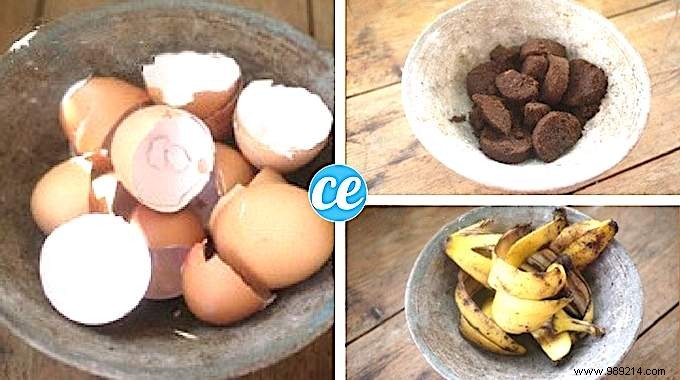
Making compost is a great way to recycle organic kitchen waste .
This is true both for fruit and vegetable peelings and for all food scraps.
This compost is then used as free fertilizer to enrich the soil of the vegetable garden.
The problem is that not everyone has the space to put a compost bin at home. And even less when you live in an apartment...
What if we told you that we can still have natural fertilizer from the kitchen without making compost?
Here is how to fertilize the soil of your vegetable garden without making compost .
Just use up leftovers from your kitchen that you would normally throw away. Look, it's quite simple:
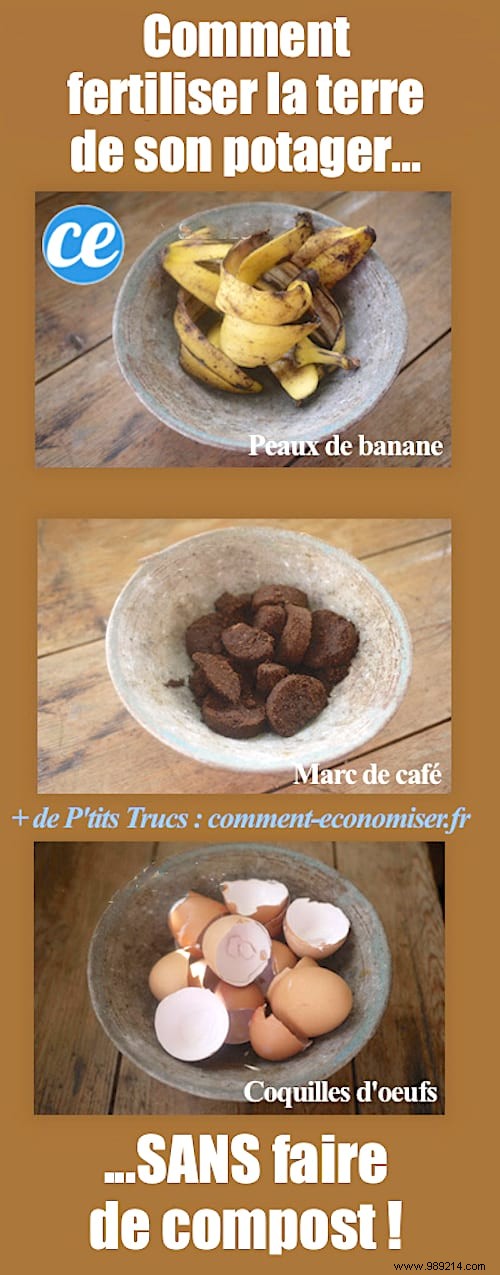
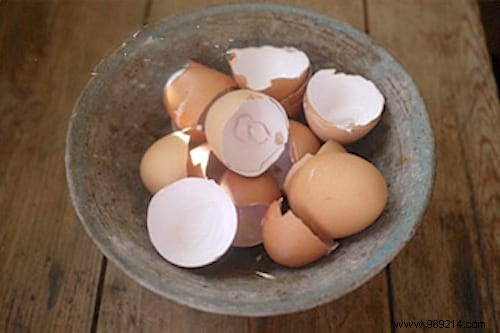
When cooking, save your eggshells. Rinse them (to avoid attracting animals) and let them dry for a few days in the sun or on a radiator. When they are dry, they crush more easily and decompose more quickly once in the ground.
Crushed eggshells improve drainage, provide calcium which promotes plant growth and prevents flowers and tomatoes from catching diseases. You can also grind them with an old coffee grinder to get a nice white powder.
By breaking them more coarsely, eggshells repel slugs and snails. For this, it is enough to make a barrier of eggshells around the young plants. For slugs and snails, it's like walking barefoot on pieces of glass.
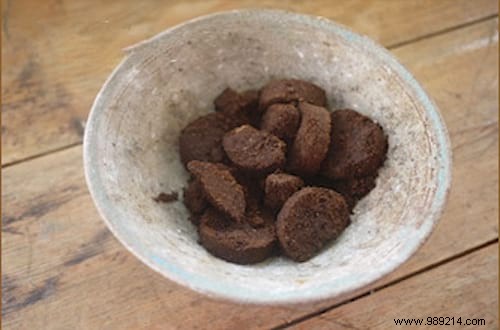
Coffee grounds can also be added directly to the soil of the vegetable garden. It is a natural fertilizer that adds organic matter, improves drainage, allows soil aeration and retains water. As the coffee grounds break down, they release nitrogen into the soil, which is great for plant growth.
Coffee grounds don't affect the pH of your soil unless you really put a lot of them in one spot. For plants that like rather acid soils, coffee grounds are your best ally. Also remember to empty your Nespresso capsules or Senseo pods to recover the coffee contained inside. Note that you can also save coffee grounds for later use.
Coffee grounds can also be used as a mulch around plants. And don't worry, even earthworms love to give themselves a little boost with caffeine!
If the coffee grounds are a little moldy, don't worry, it's part of the natural process of decomposition. It is therefore a sign of proper functioning.
Don't like coffee? No worries ! You can use the tea bags to fertilize the soil. It also works great! Find out how here.
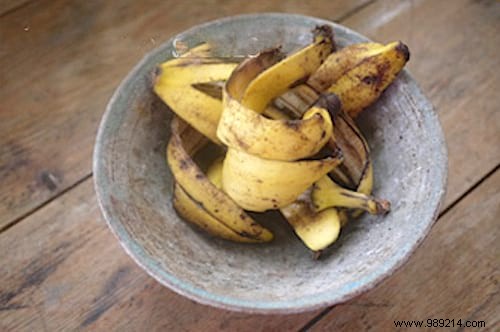
Putting banana peels in your garden soil is another way to increase your soil fertility naturally. To do this, simply put the banana peels as they are in the ground or cut them into very small pieces. They will thus decompose more quickly, allowing all the micro-organisms in the soil to benefit from them.
You will soon see beautiful earthworms appear that will aerate the soil in your vegetable garden. Once the banana peels break down, they will release a powerful cocktail of nutrients:calcium, magnesium, sulfur, phosphates, potassium and sodium. All these nutrients help plants grow well to develop their fruits and flowers, including roses which are particularly fond of them. Learn about other uses for banana peels here.